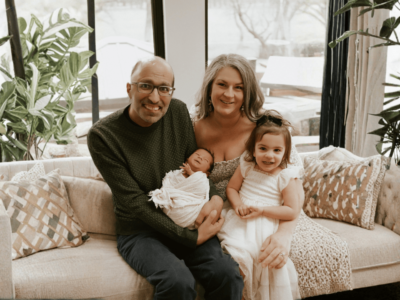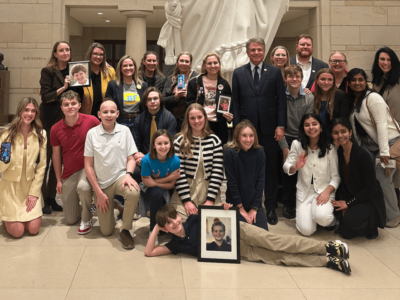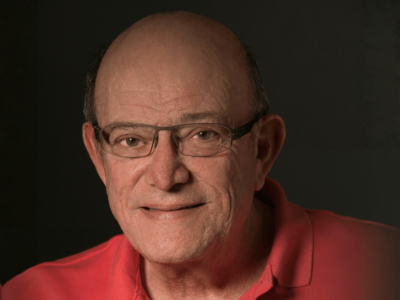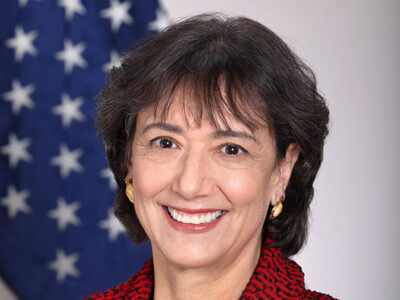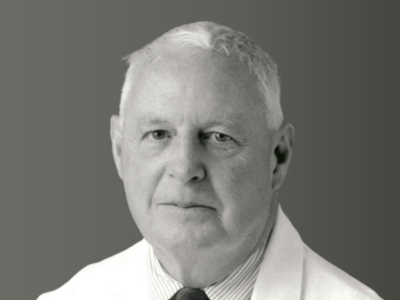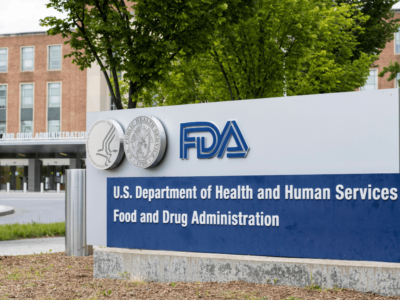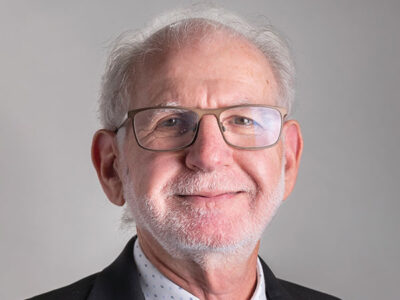Enter your organization-affiliated email address below to request or renew your sponsored account.
Latest Stories
On Jan. 24, Shauna Erickson-Abou Zahr posted these words on her Instagram feed.
By law, the Food and Drug Administration is required to determine whether a drug, device, biologic, or medical device is “safe and effective.” But the FDA determination does not control whether the Centers for Medicare & Medicaid Services will pay for it.
To satisfy CMS, medical products and services must be “reasonable and necessary,” meaning that it “meets, but does not exceed the patient’s medical need.” Simply stated, a drug, biologic, or device may satisfy the FDA’s criteria for approval, but still fail CMS’s independent statutory requirement that they be reasonable and necessary for the treatment of a specific patient or disease.
This distinction explains why the FDA’s accelerated approval of aducanumab (Aduhelm) for the treatment of Alzheimer’s disease in June 2021 did not control CMS’s independent decision whether to cover the drug.
CMS ultimately determined that aducanumab would only be covered by Medicare Part B under limited circumstances, such as FDA-approved randomized clinical trials, or in CMS-sponsored Coverage with Evidence registry studies.
What about Medicare Part D, which covers oral drugs? Although Medicare Part D plans are required by law to provide coverage for all antineoplastics, the same statutory requirement (i.e., drugs must be “reasonable and necessary”) still applies—meaning that the prescribed drugs may not “exceed the patient’s medical need.”
FDA’s Project Optimus, announced in 2021, is intended to eliminate or reduce excessive dosing of investigational drugs (i.e., prior to initial approval), implicitly acknowledging that dose optimization was generally not a consideration for oncology drugs.
For all these examples, we argue that CMS coverage of the excessive dosages is not ‘reasonable or necessary’—since the prescribed dose clearly ‘exceed[s] the patient’s medical need.’
As we have previously noted, multiple drugs have been approved by the FDA at dosages that appear to be excessive, including four drugs for which the recommended dosage has been proven to be excessive in randomized clinical trials (e.g., abiraterone, sotorasib, ribociclib, and nivolumab), as well as other drugs that are commonly prescribed at a lower dose than the FDA originally approved (e.g, pembrolizumab).
For all these examples, we argue that CMS coverage of the excessive dosages is not “reasonable or necessary”—since the prescribed dose clearly “exceed[s] the patient’s medical need.”
There are also dozens of other drugs for which prospective clinical trials of lower dosages are warranted, based on evidence that the labeled dose appears to be excessive.
Private payers can use the same strategy to protect patients from excessive dosages. Of note, for sotorasib, a year ago Cigna announced that it believed the best evidence supported a dose of 240 mg daily, rather than the FDA-approved dose of 960 mg daily.
The press release states that physicians who wish to prescribe the higher dose would be required to go through Cigna’s peer-to-peer prior approval process, while the lower dose would go through Cigna’s standard prior approval process. Other payers should follow Cigna’s lead—for sotorasib and other drugs where there is strong evidence of excessive dosing.


By reducing excessive dosing, we will improve the quality of cancer care and reduce the risk and severity of side effects. That is our primary goal. However, reducing excessive dosing also has beneficial economic consequences for patients (who will have lower co-payments) and for the healthcare system as a whole.
The U.S. is struggling with the synergistic challenges of an aging population, rising national debt, and healthcare cost inflation.
Drug costs are one of the main drivers of the cost of cancer care, which are expected to exceed $25 trillion globally by 2050.
There are substantial opportunities to reduce these costs by avoiding prescribing of unnecessary and excessive dosages of effective drugs for the treatment of cancer.
In this context, we have organized a convening in March of this year, to be held at Georgetown Law School in Washington, DC on March 4-5. More information and registration is available online.
The meeting is entitled, “Novel Solutions to Address the Rising Cost of Oncology Drugs: Targeting the Demand Side.” At this meeting, we will focus on the distinction between “safe and effective” and “reasonable and necessary.”
The meeting will include a keynote lecture by Dr. Monica Bertagnolli, former director of NCI and NIH, and will include five panels focusing on the perspective of policymakers, government payers, private payers, physicians, and patients.
Our hope is that this convening will substantially advance the conversation about anticancer drug dosing, and the medical and financial benefits of administering the right drugs at the right dosage to every patient.
As a radiation oncologist, I am struck by how often the decisive variable in lung cancer is not the sophistication of our therapy, but the timing of our encounter with the disease.
The American Cancer Society projects 618,120 cancer deaths in the United States in 2025, with lung cancer remaining as the single largest contributor, despite real mortality gains from scientific advancements like targeted and immunotherapies.¹
Luckily, we have a proven screening tool—low-dose CT (LDCT)—and randomized trials show that it saves lives. The National Lung Screening Trial demonstrated a 20% reduction in lung-cancer mortality, and the NELSON trial replicated and refined those gains with a volume-based nodule strategy.²,³
However, screening utilization remains low; in 2022, only about one in six eligible Americans were up to date with LDCT.⁴ If we want more patients to reach curative therapy, we must widen the front door to early detection as the difference between stage 1 and stage 4 is the difference between cure and control, between hope and heartbreak.
LDCT’s benefits coexist with manageable harms, including positive scans that trigger additional imaging and, in a minority, invasive procedures. Likewise, distinguishing between infection, inflammation, and malignancy of lung nodules can often prove difficult.
Luckily, blood-based biomarkers can help. Their appropriate role is not to replace CT; it is to expand reach (getting more eligible people into screening), to triage indeterminate nodules more intelligently, and to personalize surveillance after definitive therapy.
Several blood-based approaches now have enough evidence to merit consideration alongside LDCT in U.S. and European pathways—and, importantly, we have emerging performance parameters.
If we want more patients to reach curative therapy, we must widen the front door to early detection as the difference between stage 1 and stage 4 is the difference between cure and control, between hope and heartbreak.
Methylation-based multicancer early detection (MCED) assays have moved from concept to prospective implementation. PATHFINDER prospectively tested a methylation assay in 6,662 asymptomatic adults. A cancer signal was reported in 92 participants; 35 had cancer, yielding a positive predictive value (PPV) of 38%.⁵
While these multicancer early-detection assays are useful, they come with lower sensitivity for early lung cancer and thus are best deployed as a complement to LDCT rather than a substitute.
Fragmentomics—learning from genome-wide cell free DNA fragmentation patterns—looks particularly pragmatic for lung cancer screening. In a 958 participant, screening-eligible cohort, changes in genome-wide cell-free DNA fragmentation profiles in peripheral blood suggested an overall sensitivity of 84% and observed specificity of 53% at the pre-specified operating point.
Modeled to a U.S. screening prevalence of 0.7%, the authors report NPV of 99.8% and PPV of 1.3%—which is precisely why this strategy is best positioned as a gate to encourage LDCT uptake and a filter to focus follow-up imaging rather than as a stand-alone screen.⁶,⁷
Protein and autoantibody signatures bring a different advantage: stage shift. In the randomized ECLS trial (EarlyCDT-Lung followed by risk-adapted imaging), the intervention arm had fewer stage 3/4 diagnoses at two years than usual care.
Performance metrics at two years show sensitivity 52.2% for stage 1/2, specificity ~90%, with PPV 2.0% (stage 1/2) and NPV 99.8% (stage 1/2) in the screened population. However, with a high specificity but low sensitivity, this test is less than ideal for a large screening tool.⁸
While a reduction in late-stage presentations is clinically encouraging, stage shift alone is not a validated surrogate for mortality reduction in lung cancer. In LDCT trials, earlier-stage detection coincided with fewer lung-cancer deaths, but newer blood-based tests have not yet demonstrated this linkage; thus, any observed stage shift should be viewed as supportive, but insufficient until confirmed by long-term, mortality-powered studies.
Emerging cell free RNA approaches also deserve attention. New library methods can capture cfRNA from as little as 100 µL of plasma, potentially surfacing early signals when tumor DNA shedding is sparse. Robust lung-specific sensitivity, specificity, PPV, and NPV in screening populations are not yet established, but the platform expands the biology available to us.⁹
Within this landscape, a novel biomarker has emerged as an instructive single-analyte case for lung cancer screening.
CIZ1 is a DNA-replication factor whose cancer-specific splicing produces an epitope, CIZ1b, absent in normal tissue. The denaturation resistant CIZ1b epitope complexes with fibrinogen, enabling a standard sandwich ELISA with high accuracy in retrospective, stage 1–enriched NSCLC cohorts revealing a 95% sensitivity and a 96% negative predictive value.¹⁰,¹¹
The combination of high sensitivity and NPV implies that a negative result robustly rules out cancer in this early-stage context—minimizing false negatives and enabling clinicians to safely de-escalate work-ups for low-risk patients, conserve LDCT capacity, and focus diagnostic resources where the signal is stronger. Prospective clinical studies are now underway to further evaluate the performance of this marker in real-world screening and diagnostic pathways, and early results suggest continued promise.
This makes CIZ1b attractive for real-world evaluation as an adjunct to LDCT. Head-to-head comparisons and prospective, pathway embedded trials are still required, but among blood tests that might scale quickly, a lung-specific, ELISA-based signal has obvious pragmatic appeal.
These comments come with cautious optimism. Overdiagnosis and lead time/length biases are not solved by swapping photons for phlebotomy; only randomized or strong quasi-experimental designs will define the net benefit of adding a blood test upstream of LDCT.
From a radiation oncology vantage point, the case for earlier detection is practical: stage shift changes options, not just odds. With contemporary planning and staging, SBRT for stage 1 NSCLC achieves durable local control and, in carefully selected operable patients, compares favorably with surgery in emerging randomized and prospective data.
The pooled STARS/ROSEL analysis—admittedly small and closed early for slow accrual—reported three-year overall survival of 95% with SBRT vs 79% after lobectomy, with fewer severe adverse events after SBRT.¹² These findings justify SBRT as a curative option for operable disease when patient preference, comorbidity, or anatomic considerations point away from surgery.
A prospectively assembled cohort limited to small, screen detected tumors reached a similar conclusion: 10-year lung cancer–specific survival did not differ between surgery and SBRT (90% vs 88%), and the apparent all cause survival gap disappeared after propensity matching, underscoring how selection effects can cloud cross-modal comparisons.¹³
Looking ahead, the randomized I-SABR phase II trial suggests the ceiling may be even higher: adding short-course nivolumab to SBRT improved 4-year event-free survival from 53% to 77% without grade 4+ toxicity, a signal now being tested in phase III programs.¹⁴
Even after curative-intent treatment, blood-based assays continue to play a role. The TRACERx program linked early-stage NSCLC biology to circulating tumor DNA (ctDNA), showing that tumor-informed panels can detect minimal residual disease (MRD) and phylogenetically track relapse.¹⁵
Small prospective studies now suggest that post treatment ctDNA positivity stratifies recurrence risk and can precede radiographic relapse after chemoradiation—raising the possibility of biology directed surveillance intensity and earlier intervention when oligometastatic disease emerges.¹⁶
However, these comments come with cautious optimism. Overdiagnosis and lead time/length biases are not solved by swapping photons for phlebotomy. Tests with very high analytical sensitivity can identify subclinical or indolent cancers that might never progress, creating the illusion of improved outcomes without true mortality benefit. This risk is magnified when screening tools are deployed outside controlled populations or without linkage to evidence-based treatment pathways.
Only randomized or strong quasi-experimental studies that follow participants to clinically meaningful endpoints can determine whether earlier molecular detection genuinely saves lives rather than simply shifting diagnosis earlier in the disease timeline. Until then, blood-based screening should complement—rather than replace—LDCT, with implementation carefully structured to prevent overdiagnosis and overtreatment.
And implementation should aim at equity: A blood draw in primary care may be easier to scale in communities with poor LDCT access, but only if payers cover the test, and workflows match real-world primary care throughput.
Implementation should aim at equity: A blood draw in primary care may be easier to scale in communities with poor LDCT access, but only if payers cover the test, and workflows match real-world primary care throughput.
The prize is tangible—more stage 1 patients, more candidates for curative treatments, and less side effects from treatment.
Still, acceleration should be pragmatic. Embed promising blood tests into LDCT pathways and measure them by patient-relevant endpoints: Stage distribution, procedure rates, time to diagnostic resolution, and patient-reported experience. Favor assays that run on standard lab infrastructure, because throughput matters as much as accuracy. And write equity into protocol design from day one.
Given the current evidence, what matters most is not the success of any single assay, but whether blood-based biomarkers as a class can be responsibly integrated into lung cancer screening pathways. The ideal adjunct to LDCT will combine high sensitivity for early-stage disease with a strong negative predictive value, allowing clinicians to confidently rule out cancer in low-risk settings while focusing imaging, biopsies, and specialist care on patients most likely to benefit.
In practice, such tools should be evaluated not by isolated performance metrics alone, but by how they function within real-world screening workflows: Do they increase screening participation? Do they shorten time to diagnostic resolution? Do they reduce unnecessary procedures without increasing missed cancers? And critically, do they improve outcomes that matter to patients—earlier stage at diagnosis, fewer complications, and greater access to curative treatment?
If these technologies are held to rigorous standards and embedded thoughtfully alongside LDCT—not as replacements, but as complements—we have an opportunity to widen the front door to early detection. The result would be more patients diagnosed when a cure is possible, fewer exposed to the toxicities of advanced disease, and a screening paradigm that better reflects both the biology of lung cancer and the realities of access in our healthcare system.
References
- Siegel RL, Miller KD, Wagle NS, Jemal A. Cancer statistics, 2025. CA Cancer J Clin. 2025;75(1):5-27.
- National Lung Screening Trial Research Team. Reduced lung-cancer mortality with low-dose computed tomographic screening. N Engl J Med. 2011;365:395-409.
- de Koning HJ, van der Aalst CM, de Jong PA, et al. Reduced lung-cancer mortality with volume CT screening in a randomized trial. N Engl J Med. 2020;382:503-513.
- Henderson LM, Sprague BL, McCarthy AM, et al. Prevalence of lung cancer screening in the US, 2022. JAMA Netw Open. 2024;7(4):e2410107.
- Schrag D, Beer TM, McDonnell CH, et al. Blood-based tests for multicancer early detection (PATHFINDER): a prospective cohort study. Lancet. 2023;402(10409):1251-1260.
- Mazzone PJ, Bach PB, Carey J, et al. Clinical validation of a cell-free DNA fragmentome assay for augmentation of lung-cancer early detection. Cancer Discov. 2024;14(11):2224-2242.
- Mazzone PJ, et al. Cancer Discov. 2024;14(11):2224-2242.
- Sullivan FM, Mair FS, Anderson W, et al. Earlier diagnosis of lung cancer in a randomized trial of an autoantibody blood test followed by imaging (ECLS). Eur Respir J. 2021;57(1):2000670.
- Wang J, Huang J, Hu Y, et al. Terminal-modifications-independent cfRNA sequencing enables sensitive early cancer detection and classification. Nat Commun. 2024;15:156.
- Higgins G, Roper KM, Watson IJ, et al. Variant CIZ1 is a circulating biomarker for early-stage lung cancer. Proc Natl Acad Sci U S A. 2012;109(45):E3128-E3135.
- Coverley D, Higgins G, West D, et al. A quantitative immunoassay for the lung-cancer biomarker CIZ1b in patient plasma. Clin Biochem. 2017;50(6):336-343.
- Chang JY, Senan S, Paul MA, et al. Stereotactic ablative radiotherapy versus lobectomy for operable stage I NSCLC (pooled STARS/ROSEL). Lancet Oncol. 2015;16(6):630-637.
- Henschke CI, Flores RM, Kaufman A, et al. Prospective cohort: long-term lung cancer–specific and all-cause survival of T1a-b (≤20 mm) NSCLC treated by SBRT vs surgery. J Thorac Oncol. 2024;19(3):476-490.
- Chang JY, Lin SH, Dong W, et al. Stereotactic ablative radiotherapy with or without immunotherapy for early-stage or isolated lung parenchymal recurrent node-negative NSCLC (I-SABR): phase 2 RCT. Lancet. 2023;402(10405):871-881.
- Abbosh C, Birkbak NJ, Wilson GA, et al. Phylogenetic ctDNA analysis depicts early stage lung cancer evolution (TRACERx). Nature. 2017;545:446 451. P
- Nielsen LR, Kristensen TK, Krag SRP, et al. ctDNA based minimal residual disease detection after chemoradiation in NSCLC. J Thorac Oncol Rep. 2024;5:100640.
Disclosure
- Dr. King serves as a scientific advisor to Cizzle Bio, the company developing the CIZ1B biomarker test. He receives shares in the company as compensation for this role but no direct financial compensation.
Immune-checkpoint inhibitors (ICIs) transformed treatment paradigms in dozens of malignancies, yet oncologists still confront a deceptively simple question at every consult: Will this individual patient benefit and at what cost?





